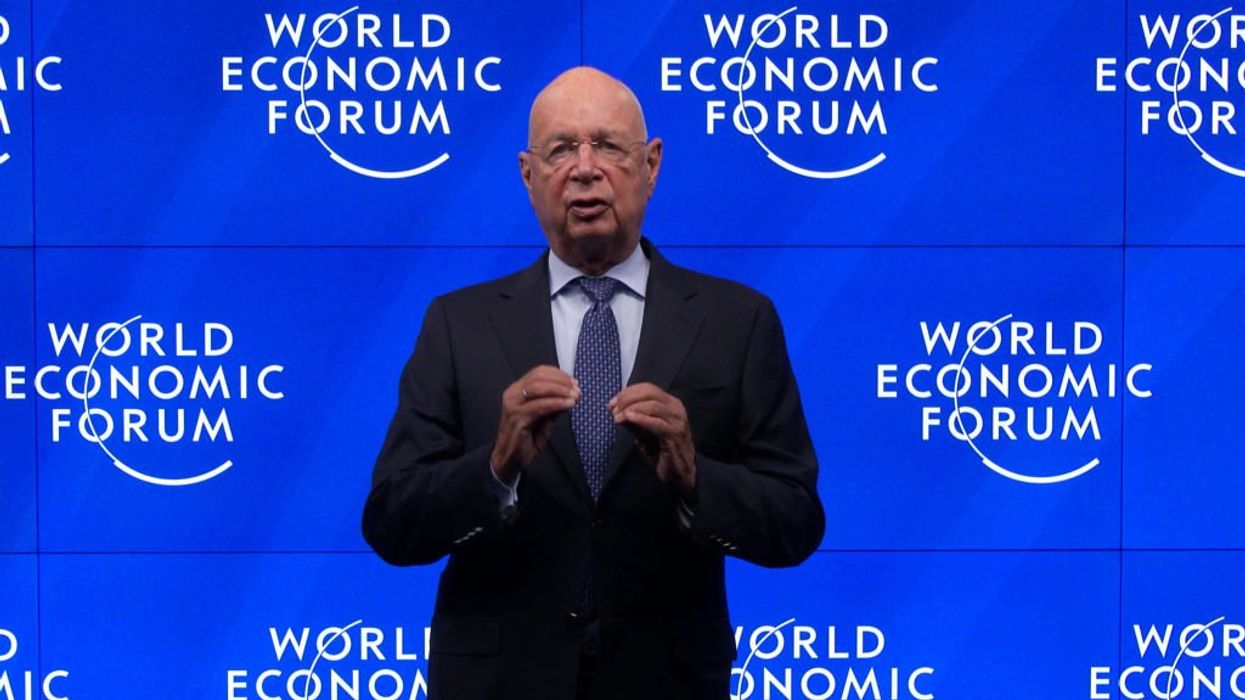
Photo by Getty Images/Getty Images for Greentech Festival

North Korea's communist dictator kicked off the year by threatening to annihilate America. China, facing another year of economic turmoil and record-high youth unemployment, continues to threaten to conquer Taiwan and engage its defenders. Ukraine remains occupied by nearly 500,000 Russian troops. While signaling continued support for Israel in its war against Hamas terrorists, American forces, running low on munitions, recently sank the ships of Iranian proxy fighters.
Despite the pressing threat of worsening armed conflicts and possibly even nuclear holocaust, Klaus Schwab's World Economic Forum revealed this week that the world has far more pressing concerns.
According to the WEF's " Global Risks Report 2024," the greatest threats facing humanity over the next two years are "misinformation and disinformation" and bad weather.
The report — based on a September survey of 1,490 academics, politicians, bureaucrats, and other elites ostensibly severed from Main Street concerns — analyzed global risks through three time frames "to support decision-makers in balancing current crises and longer-term priorities."
Concerning the year at hand, 66% of respondents suggested weather was most likely to present a material crisis on a global scale. Only 25% said the same of war or escalations in ongoing conflicts.
After undesirable speech and weather events, societal polarization, cyber insecurity, and interstate armed conflict ranked third, fourth, and fifth in terms of risk severity, according to the technocratic outfit's two-year period risk assessment. Inflation of the kind now eating away into American savings and driving up the cost of living ranked seventh, while economic downturn barely made the top ten.
Josie Glabach, the commentator known online as the Redheaded Libertarian, highlighted that the "first four concerns deal in how to control the populace. The following topics that deal more in the well-being of that populace come secondary."
The Virginia Project, a state Republican PAC, responded to the WEF's list, noting, "Literally every single one of these problems is driven by the kind of people who made this chart."
Unlike the globalized average, American respondents to the survey indicated their top five risk concerns were: economic downturn; infectious diseases; inflation; use of biological, chemical, or nuclear weapons; and energy supply shortage.
The report claimed that over the next 10 years, the top four perceived risks were all related to the environment: extreme weather events; critical change to Earth systems; biodiversity loss and ecosystem collapse; and natural resource shortages, in that order.
"Misinformation and disinformation" reappeared, ranking fifth. Unlike misinformation, war did not make the top ten for the list of 10-year global risks. Totalitarianism, plutocracy, sterility, and a declining birth rate similarly did not make the list or receive mention.
South African billionaire Elon Musk responded to the report, writing, "By 'misinformation', WEF means anything that conflicts with its agenda."
One critic suggested, "This is how Experts always end up sleepwalking into censorious and/or genocidal policies. Just take it to the logical conclusion: - 'Misinfo is worse than War because it causes War.' - 'Dissidents are worse than Misinfo because they create Misinfo.'"
The report defines misinformation and disinformation thusly: "Persistent false information (deliberate or otherwise) widely spread through media networks, shifting public opinion in a significant way towards distrust in facts and authority."
While acknowledging that the crackdown by authorities on so-called misinformation, particularly of an AI-generated sort, poses a risk of "repression and erosion of rights," the WEF suggested that there is also "a risk that some governments will act too slowly, facing a trade-off between preventing misinformation and protecting free speech."
The WEF report concluded by claiming "known and newly emerging risks need preparation and mitigation. ... Localized strategies, breakthrough endeavours, collective actions and cross-border coordination all play a part in addressing these risks. Localized strategies, leveraging investment and regulation, are critical for reducing the impact of global risks."
Unsurprisingly, the report stressed the need for "cross-border coordination."
Like Blaze News? Bypass the censors, sign up for our newsletters, and get stories like this direct to your inbox. Sign up here!